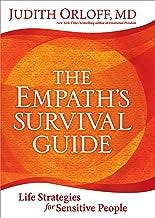Subtle Lines: Gender
If adult authority was a clear bold line for me, then an example of a more subtle line was that of gender. And by gender I’m not speaking so much of biological sex. Biology seems to most often illustrate its distinctions fairly clearly, for example, boys have a penis and girls a vagina. I’m writing more about the subtle lines that delineate the range of characteristics pertaining to and differentiating between “masculinity” and “femininity.”

Obviously, a lot of these social and cultural characteristics have changed somewhat and get renegotiated over time. But as I am writing a memoir, I hope to authentically portray what I experienced or observed as a child and adolescent about what it meant to be male. And just to be clear, I’m not yet talking about sexuality, sexual orientation, or what I learned in sex education classes. Although I’ll get to that. At this point I’m considering those characteristics, most often de facto, that seemed to me to be encouraged, or not, for a boy being raised in the South in the 1970’s and 80’s.
Let me first digress to say a little more about the personality that either was already fairly intact within me or that was continuing to develop through my early years. If you are already acquainted with the Meyers-Briggs Personality Type Indicator, I am what they call an INFJ. The letters of INFJ stand for Introversion, Intuition, Feeling, and Judgment. I’ll not go into each of these individually at this point. But in my personality mix, these four of the sixteen types come together in such a way to be referred to, at least by Meyers-Briggs as, “The Empath,” “Protector,” “Advocate,” “Counselor.”
It’s this empathic component of my personality that I think is most relevant to note at this point by simply stating that I was a sensitive kid. One description of empaths is that they are highly sensitive individuals, who have a keen ability to sense what people around them are thinking and feeling. Even more, per Meyers-Briggs, if there is a personality most likely to possess the capacity for ESP, extrasensory perception, it is the INFJ. Personally, I’m not so sure about this ESP “sixth sense” or that I’ve ever learned how to harness, even more, trust it. But I am sure that as a child and even into adulthood, I didn’t need an emotional interpreter to explain to me what most people were trying to convey through at least their verbal and even nonverbal efforts. My mom tells me that I used to ask her if she was upset with me or just looking that way.

Add to this level of sensitivity the notion of what neuroscience calls “the negativity bias.” This is the proclivity of the mind to watch out for and retain negative experiences more than positive. One such researcher explains it as, “The brain is like Velcro for negative experiences, but Teflon for positive ones.” Human beings do this as we have been conditioned for millennia to protect ourselves from harm, such as from the prehistoric animals that were much larger and even more dangerous than our other human counterparts. This cognitive ability could be lifesaving, but fast forward to modern times where most of us are most often not running for our lives, (or are we?). If we don’t learn how to counter this tendency for negativity, we end up with much more stress than is good for us, wreaking havoc on our adrenal, immune, and really all systems of our body. But I’m now getting ahead of myself.
My point in writing about this bias of negativity coupled with a general inclination for sensitivity is to share that as I child I often picked up on and remembered negative or disapproving feedback. Regarding gender anyway, I seemed to learn to care about those characteristics that were not encouraged, even chastised, especially by my peers.
*Thanks for reading and/or listening. Continue to next post Gender continued…Men Can’t Be Mothers. To read from the beginning please go to Why I'm Writing in the Archive.
I love receiving your comments if you’d like to share publicly or just email me directly.



